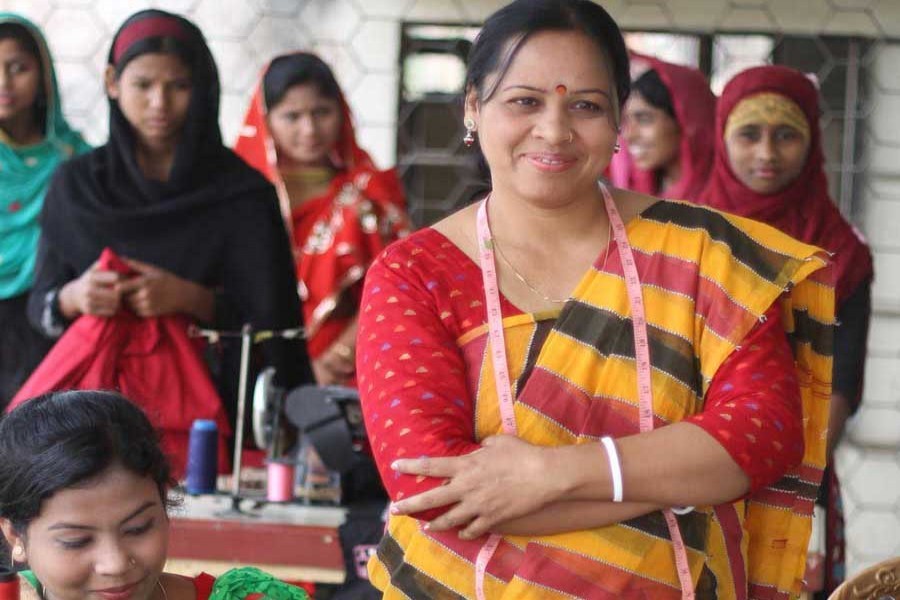Bangladesh's achievements on the social front, especially in the area of gender parity have earned appreciation from its international development partners. Especially, the higher enrolment rate of girls in schools and improvement in female healthcare have drawn global attention. Even so, the progress over the years has not been even, particularly when it comes to women's economic empowerment. The report on the global gender gap prepared by the World Economic Forum (WEF) in April this year placed Bangladesh in the 65th position among 156 countries. This score compared to last year's was fewer by 15 points, though the country maintained its top position in the South Asian context. The reason behind this loss of points has been attributed mostly to the fact that the existing gaps relating to women's participation in the economic activities and the opportunities available to them in this regard could not be plugged.
Then, the verity of this WEF report has again been corroborated by a recent study done by a local think tank on economic issues in collaboration with a non-government body working for women's social and economic empowerment. In fact, except in some areas such as women's political empowerment where Bangladesh stands way above most countries in the world, it is lagging in the areas of women's access to decent work, finance, economic assets as well as their right to have their say in economic decision-making. Such a lack of power to take decisions on economic issues is noticeable within the family as well as at workplaces outside the family.
True, women's participation in the country's workforce has seen a 36 per cent increase but only 31 per cent of those working women are employed under a wage structure. Society is yet to think of monetising the work being done day in, day out by women- 29 per cent of them- within their households. Worse still, 92 per cent of all these women in the labour market are working in the informal sector. As such, the issue of gender parity in the economic sense of the term bears little significance for women working in these sectors. That is especially so for the women in the informal sector where the overwhelming majority of them are engaged. However, the study in question showed, for example, the positive impact of women's participation on the national economy. An increase of ten percentage points in women employment in Bangladesh, for example, can add 3.1 per cent to the gross domestic product (GDP). Calculating the increase against Bangladesh's GDP in the FY 21, the amount so added would come to US$11.3 billion. The figure points to how immense women's contribution to the economy would be, if the full potential of their economic worth could be utilised.
What is at issue in this context is more than just participation of women in work. On the contrary, to make female participation in the work force meaningful, gender parity at the workplace has to be established. Of course, this parity has to be expressed through equity in terms of pay, perks and decision-making. However, women's economic empowerment cannot be limited to the job market alone. As in the job market, they should also be equally visible in running small to big businesses independently. In sum, the call for establishing women's economic rights is not about doing them a favour. Their equal partnership is crucial to an inclusive and sustainable development of the economy.


